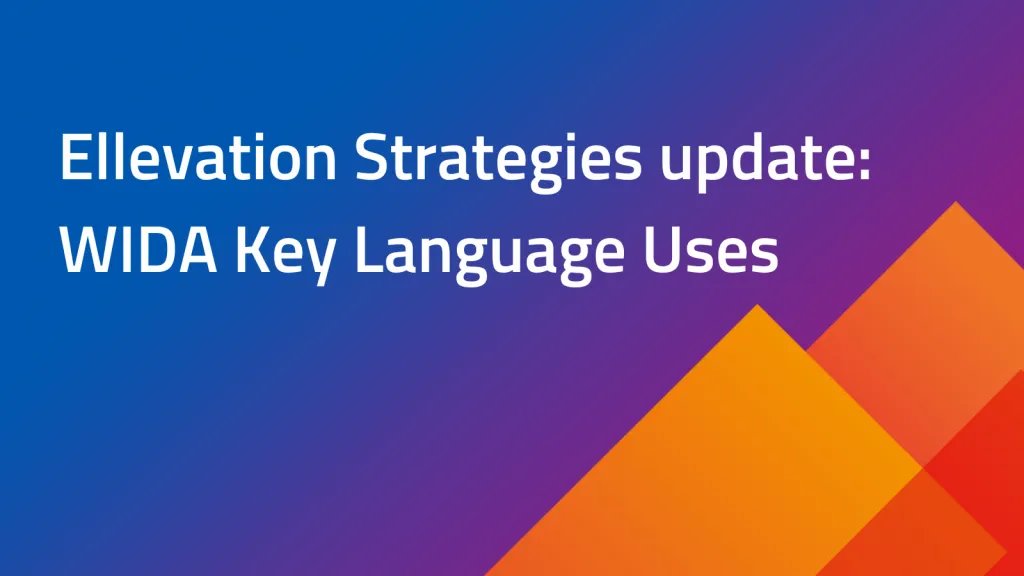Ellevation Strategies update: WIDA Key Language Uses


Ellevation Strategies update: WIDA Key Language Uses
Language development is crucial for English learners (ELs) to be able to succeed academically. It also allows students to bridge their home cultures with their school environment: when ELs can use language to narrate their own experiences and communicate with others, they can share and validate their identities in their learning environments.
Educators play a pivotal role in guiding ELs through their language development by creating an environment where language development is supported and encouraged. The WIDA English Language Development Standards Framework is a resource that educators use to increase equity for multilingual learners while supporting language development; the 2020 edition was updated to include additional guidance around language expectations for students. Learn more below about the four WIDA Key Language Uses (KLUs) and discover how Ellevation Strategies has added new updates to support educators in using these standards to impact multilingual learner outcomes.
What are the four WIDA Key Language Uses?
WIDA is an educational organization that provides tools, resources, and research to help educators support multilingual learners in their language development and academic growth. Their English Language Development (ELD) Standards now include the four Key Language Uses:
- Narrate: Narrating involves telling stories, describing events, or recounting experiences. This includes both fictional and real-life events, with a focus on time, sequence, and character actions.
- Inform: Informing focuses on providing factual information, describing, or giving instructions. This function is commonly used in academic settings to convey knowledge clearly and accurately.
- Explain: Explaining involves clarifying how something works, why something happens, or the cause-and-effect relationships between concepts. It requires more in-depth reasoning than simply informing.
- Argue: Arguing involves presenting a claim or opinion, supporting it with evidence, and reasoning to convince others.
The KLUs highlight a few broad language functions to bring focus to the different ways students are expected to engage with language throughout their learning experience. Aligning classroom activities to these language uses and expectations empowers educators to support their multilingual learners in mastering academic language and content.
Ellevation Strategies update to support WIDA Key Language Uses
Ellevation Strategies is a professional learning solution designed to deepen teacher EL knowledge, fulfill district-wide instructional goals, and improve educators’ ability to make content accessible to ELs while engaging all students. Our library of research-based instructional activities within Ellevation Strategies has recently been updated to include language examples aligned to the WIDA Key Language Uses, making planning for and incorporating these standards and expectations into instruction more seamless than ever before.
Ellevation Strategies users can now filter activities by WIDA KLUs to find activities that support a specific expectation for language use in the classroom, such as “Explain: Compare and Contrast.” For each activity, they can also view the section “Language Examples for WIDA Language Expectations.” This section outlines the specific Language Expectations that the activity can support multilingual learners in meeting.
Ellevation Strategies' recent updates to support the WIDA Key Language Uses make it easier for educators to plan lessons that support English learners' language development in any classroom. By integrating these tools, teachers can help students strengthen their academic language skills as they engage meaningfully with content learning.
Learn more about this topic in our session at the upcoming WIDA Conference titled, “Bring the WIDA 2020 Framework to every classroom with Ellevation Strategies.”